Reflections on the changing landscape of linguistics fieldwork
Written by Professor Janet C.E. Watson
Back in mid-December after two months fieldwork on Mehri and Shehret in Dhofar, southern Oman (see a map here: LSAM_NB-07), I began to think about ways in which my fieldwork has changed since I first worked in the western mountains of the Yemen Arab Republic in the late 1980s.
I spent my early time in the Yemeni western mountains of Raymah, in al-Jabin ‘the brow’. Walking in the early morning, the smell of bread from clay ovens, beneath me the clouds. That I will never forget, and probably never experience again. At night, with no light pollution once the small domestic generators had been turned off, I would look up and see the stars as large as apples. Utter joy. That I will never experience again. During the day, I would walk from settlement to settlement. Steep, sheer mountains, houses perched, and then without warning a green opening. The green openings, like the Austrian alms, felt like a fairy tale. I had travelled previously – Germany, Burgenland in Austria, Czechoslovakia, Spain, France – but I had never done what I had always wished for – I had never travelled back in time. This felt like that.
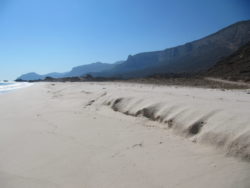
The digital revolution has had a major effect on fieldwork methods. In the past, if I ever needed extra data while working on San’ani Arabic, I would send a letter to Tim Mackintosh-Smith, asking him to check a word or a paradigm with language consultants. I would then wait for the answer, Yemeni and British post permitting. Any extra data I would have needed from the western Yemeni mountain region of Raymah I could only have gathered by returning to the field. Today, I can send a WhatsApp message to consultants and receive an answer within the day. I can check answers from consultants with other consultants. Digital recorders left in safekeeping with consultants mean I can request data that is uploaded to Dropbox. The digital revolution also allows the fieldworker to check in with colleagues at home: sharing files on OneDrive, recording quality was checked during the last fieldwork trip by my colleagues, Barry Heselwood and Gisela Tomé Lourido, before I continued to record, word lists adjusted to account for new findings. But the digital revolution comes at tremendous cost: in my early years of travelling with no affordable means of contacting home, total immersion was possible. Total immersion enabled me not only to learn the language variety in question; it also helped keep my ADHD at bay. It would take a brave fieldworker to leave their smartphone behind today. The smartphone has resulted in decreasing attention spans of both fieldworker and consultants: while in my early days of studying Yemeni Arabic and Mehri people would sit around the fire in the evening and share stories, today many sit with their phones. A bit of a story and then YouTube or someone calls.
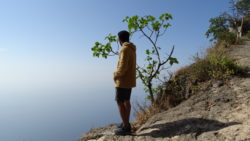
Other changes in fieldwork include pre-travel administration and amount of physical exercise. Risk assessment clearance and ethical approval from the University was never an issue in the 1980s. And it costs time. One time, shortly before the Covid-19 pandemic, ethical approval took over two months to obtain. Patience is still one virtue I lack. Today I can get my visa for Oman approved online within 24 hours. For Yemen, I would either travel to the Embassy or send my passport, hoping it would return on time. Physical exercise has also changed. When I look back, I realise that the amount of exercise during fieldwork has decreased exponentially: in the 1980s, I would walk or climb every day, often long distances; in San’a, I would walk across the old city, climbing stairs of huge tower houses to visit families; in al-Ghaydhah, southern Yemen, I sat in my host’s house, and any physical exercise involved playing with the children to practise Mehri imperatives; in the Dhofari desert village of Rabkut, I would walk out with my friend, Bxayta, to tend the goats, before the rains failed occasionally taking goats out to graze in the afternoon; in Salalah, the capital of Dhofar, any walking is planned exercise and I frequently count turning the steering wheel of my hired car or tidying up after friends’ children as exercise. This drop in exercise, in movement, is partly due to change in fieldwork location from the western mountains of Northern Yemen to cities and towns; partly due to urbanisation and socio-economic change, such that the people I work with no longer practise livestock husbandry or engage directly with the natural world.
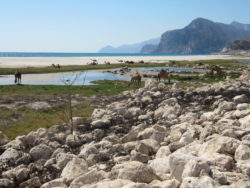
When I ask my good women friends in Dhofar, ‘Was life better in the past?’, they say, ‘No. We had nothing.’ Asked this question, my grandmother would have replied, ‘Yes. It was.’ In Dhofar, ‘nothing’ means that nothing was given: water, fuel and fodder had to be fetched; food was gathered, raised or hunted; goats were herded by girls and women, camels by men and boys; water was sourced. Modernisation means that life is exponentially easier; but so much has been lost: a life lived predominantly out of doors is now lived mainly within four walls and a roof; knowledge of plants and fauna is rarely found among the younger generations; nature is something you visit for a picnic; the symbiotic relationship between nature and human life has been lost; the smartphone has resulted in ever decreasing attention spans. For speakers, these changes have meant that they no longer engage with semantic fields that were a part of life in the past. If you no longer have to source water, herd livestock, collect fodder for livestock, food for yourself, fuel for cooking and the evening fire, you no longer require a wealth of vocabulary that has developed over centuries. Names of plants and landscape features, so essential once for livestock and for yourself, lose currency. Bxayta at this point complains that her sons don’t know the names of the low-lying plants. I say, ‘Abdullah knows.’ She says, ‘Only because you taught him!’
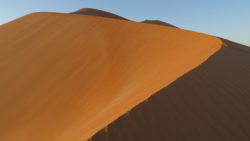
What have these changes meant for the fieldworker? Far more prosaically, although the equipment is more affordable, portable and better, recording conditions are not. Today the fieldworker has to contend with noise from all angles: the plane flying overhead, the battery of smartphones, air conditioning in the next room, television, the fridge, traffic, horns, children’s cries bouncing off bare walls in sparsely furnished homes. On my 2021 fieldwork trip, I collected early recordings in my hotel room, reasonably well-furnished but disturbed on occasion by the hum of the fridge next door, the neighbour’s television, or the sea if the wind was strong. Later in my rented flat, the clacking water pumps and ventilation systems on the roof and the lift spilt extraneous sound into the recording. Said Baquir kindly offered me his office, and we scurried around turning off the air conditioning throughout the building. On several occasions I recorded in the car, throwing a shawl or blanket over the speaker’s head and hoping against hope that that blasted motorbike would not speed by during the recording.
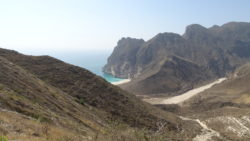
My consultants are my friends and, as friends, we look for similar experiences that bind us. We worked out that Bxayta, nicknamed ‘the Mehri Dictionary’, was born in the same month as me – in May 1959 during the Year of the Drowning. I would share stories of my grandmother, thinking the social differences between the UK and southern Arabia would have been far less in her days. And I feel the tugging need to maintain connections: Halimah, who I first stayed with in Ibb in 1986, was about the same age as me. I would always go to see her when I visited Yemen, travelling down to Ibb from San’a the day after landing before the fear of tackling the notorious Sumārah pass became too great. In 2008, Halimah moved house and I lost contact with her. In January 2020, I met Ali Salim al-Huraizi, the leader of the Mahrah resistance in Yemen, in Muscat. He had a journalist from Ibb who wanted to interview me. During the interview, I appealed to Yemenis for information about Halimah. By Yemeni custom, I should not have used her name, but I needed to if I were to receive any news. A month after my return, an email popped up in my inbox, ‘I am Bashir, the son of Halimah. She sends her regards.’ We spoke by video that afternoon and remain in touch.
Fieldwork is difficult, often frustrating and full of potential for error. We often feel alone, but the fieldworker is never alone. I have learnt through the kindness of strangers that anyone can be your teacher. I continue to travel back in time, though not as I did in the western mountains of Northern Yemen. My time travel now is through my memories and through the stories of my older women friends. How fantastically wonderful it would be to take them by the hand and return to their youth, if just for one day.
